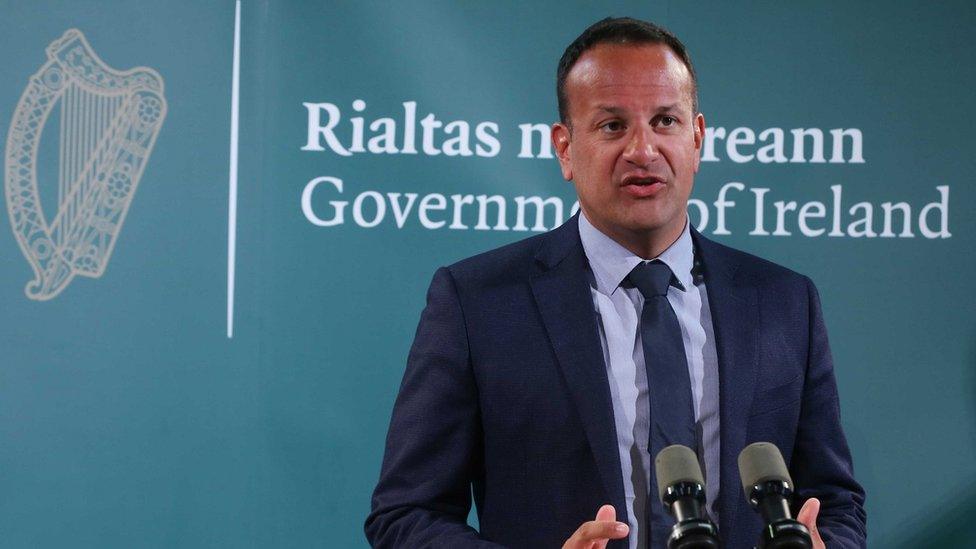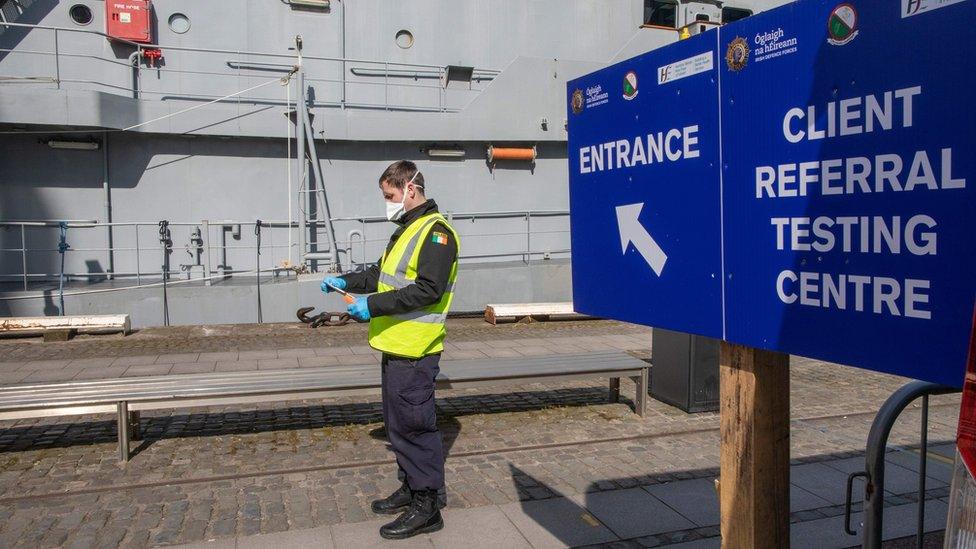Coronavirus: Republic of Ireland introduces stronger measures
- Published

Taoiseach Leo Varadkar has announced new measures to slow the spread of coronavirus in the Republic of Ireland.
The Irish prime minister asked people to stay at home, if at all possible.
The government said it was seeing early signs of success in slowing the virus through social distancing, but asked people to "go further".
Mr Varadkar said people should only leave home for work if it is essential, to shop for essential supplies, to care for the vulnerable or to exercise.
So far, 1,125 cases have been confirmed in the Republic of Ireland and six people who had Covid-19 have died.
Mr Varadkar said all non essential indoor visits should be avoided.
Any outdoor gatherings should include no more than four people, unless they are from the same household.
Theatres, playgrounds, clubs and gyms are to shut. Hotels will stay open only for non social and non tourist reasons.
The restrictions will stay in place until 19 April.

LIVE: Latest updates
A SIMPLE GUIDE: What are the symptoms?
AVOIDING CONTACT: Should I self-isolate?
LOOK-UP TOOL: Check cases in your area
MAPS AND CHARTS: Visual guide to the outbreak

Mr Varadkar said it was too early to know for sure if the measures currently imposed had had an effect, but that the government believes they were making a difference.
“We cannot stop this virus, but working together we can slow it in its tracks and push it back," he said.
"These are extraordinarily difficult times for everyone – in Ireland and around the world. But no matter what happens, we will always put your life and your health ahead of any other concern."
Mr Varadkar said gardaí and park rangers would be out and about to ensure that people maintain social distancing.
He said their powers would be used "sparingly and only where necessary" and that he was not using the term "lockdown".

A Covid-19 testing centre was set up in Dublin city centre
He said factories and construction sites could remain open, if they maintained social distancing.
In terms of money, unemployment benefits would be raised to 350 euros a week and those who were forced to self isolate would also get this sum.
"The cost will be a great many billions of euros, we can bear it and we will be able to pay it back as a nation," he said.
Social solidarity
Private hospitals will add 2,000 beds, nine laboratories and thousands of staff to the Irish health service, he said.
Public and private patients who contract the virus will be treated equally and the private sector are doing this on a not for profit basis, he added.
Mr Varadkar called for "social solidarity, unity and a sense of community".
The taoiseach said these were "unprecedented actions to respond to an unprecedented emergency".
Finance Minister Paschal Donohoe said the Covid-19 financial measures could cost 3.7bn euros over a 12-week period.
But he said that action had to be taken now "to avoid an even greater economic challenge in the future".
The minister for business said Ireland's economic landscape had been "utterly transformed" and that the government would support businesses to help them pay their workers.
The taoiseach also told students in the Republic of Ireland that there was "a very good chance" their Leaving Certificate (equivalent of A-Level exams) would go ahead.
He encouraged students to continue to study for them.